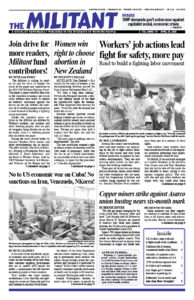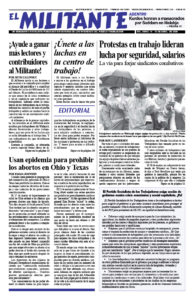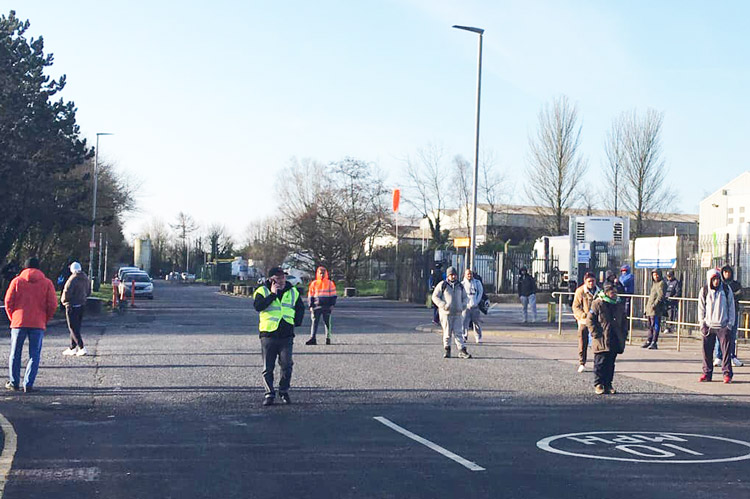MANCHESTER, England — Workers at three meat and poultry plants in Northern Ireland have staged walkouts to protest bosses’ refusal to implement measures aimed at reducing the spread of coronavirus. Across the U.K., workers in food production, transport and other industries are looking for ways to push back against unsafe conditions and to protect workers who have been told to stay at home.
At the Tulip meat factory in Dukinfield, near Manchester, over 50 workers refused to start production lines for an hour on March 25 until bosses assured that they would look for ways to create more distance between each worker on the line and take other protective measures. After workers pressed for masks, bosses started to provide face visors.
“Normal everyday workers are holding the country together right now,” said Adam Herring, a butcher at the plant. “In my experience bosses have profit at the forefront of their minds, even if it risks the health of their own staff. The only way to ensure that correct measures of safety are adhered to by bosses is to organize and insist on them.”
At the Moy Park poultry plant in Portadown, Northern Ireland, with more than 1,000 employed, hundreds of workers walked out March 25 as bosses ramped up production with no regard for safety. Both Moy Park and Tulip are owned by Pilgrim’s Pride Corporation.
As a result, bosses “have slowed the lines down so you can have two meters between workers,” Sean McKeever, regional officer for the Unite union, told the Militant by phone. “It’s because of what workers did that the company is moving. We’ve called on them to pay those who have to stay at home full wages.” The legal minimum bosses have to pay workers who are sick or self-isolating is 94.25 pounds ($117) per week.
At nearby ABP Meats in Lurgan and Linden Foods in Dungannon, workers also walked out over the same issues.
The U.K. government instructed people to stay at home, with a handful of exceptions, March 23. By then, huge numbers of companies had already shut their doors. They were promised 80% of the wages if bosses decided to “furlough” rather than lay them off. Nevertheless, in the space of nine days up to 477,000 registered as unemployed.
“I feel lucky,” Luke Smith, another Tulip butcher, told the Militant. “I’ve got work, while many people are losing their jobs right now.”
Rail workers discuss protections
Workers at Manchester Piccadilly rail station are among those looking for ways to protect their livelihoods and safety. Rail companies are running a skeleton service.
Clayton Clive, a Piccadilly-based train conductor and chairperson of the Rail, Maritime and Transport Workers union Manchester South branch, reported that some of the workers who do the onboard food trolleys for Rail Gourmet won a reprieve after they were laid off March 24.
“At first they were doing extra cleaning tasks but were then laid off,” Clive told the Militant. “Workers and the RMT pressed on getting them back to work or compensated. The company agreed to take a number of them back on cleaning, while those not working will be paid 80% of their wages.”
Rail bosses have slashed jobs for decades as they impose driver-only operations on some 30% of the network. Workers at Southwestern Railways struck in December against job cuts and attacks on safety.
“Our safety is an afterthought for the bosses. Nothing happens unless we press for it,” said Pete Clifford, a Communist League member and platform worker at Picadilly. He said workers at different rail companies there pressed bosses to provide hand sanitizers.
“Government moves make things worse,” Clifford said. “In London, a cut in the underground rail services has led to more overcrowding. Then they blame workers who use public transport for not staying sufficiently distant from each other. Joining the fights being waged by workers today and demanding protection for all workers from the effects of the capitalist crisis is the way forward.”
Wils and Jónsson work at Tulip in Dukinfield.


